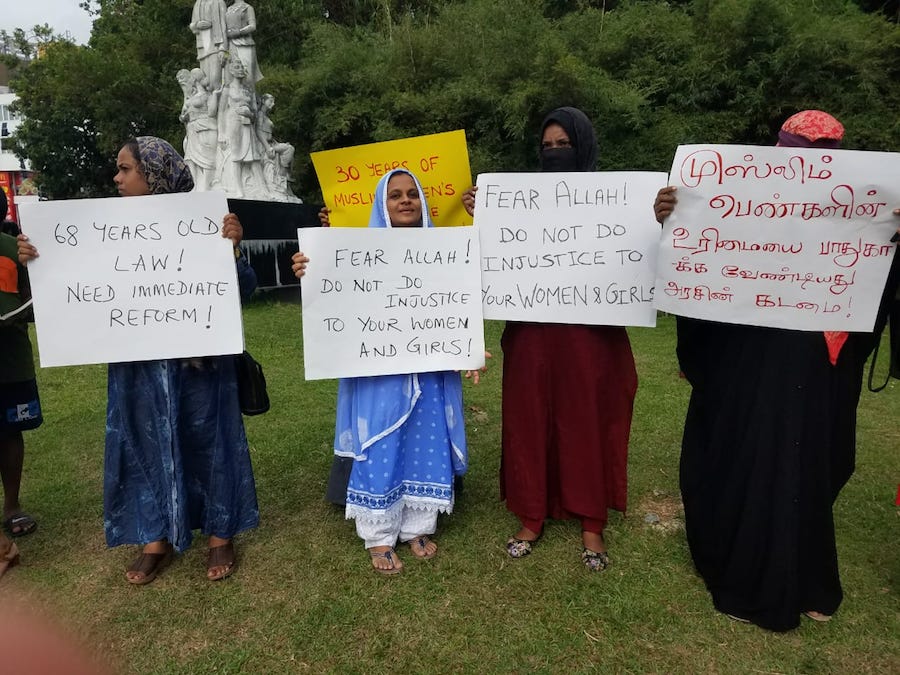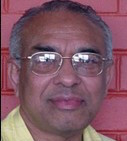A Brief Colonial History Of Ceylon(SriLanka)
Sri Lanka: One Island Two Nations
A Brief Colonial History Of Ceylon(SriLanka)
Sri Lanka: One Island Two Nations
(Full Story)
Search This Blog
Back to 500BC.
==========================
Thiranjala Weerasinghe sj.- One Island Two Nations
?????????????????????????????????????????????????Tuesday, July 31, 2018
MMDA: Why Silence & Inaction?

 If procrastination and inaction are the defining characteristics of the Yahapalanaya regime then the saga of the Marsoof report on Muslim Marriage and Divorce Act (MMDA) says it all. This Act of 1951, whose genesis actually goes back to 18th century
Dutch ruled Batavia, was borrowed and adapted by our British colonial
masters to suit conditions prevailing in the Ceylon of 1806. What was a
convenient and quick solution to an issue of Muslim social and religious
management by an alien power, was, after independence, given
legislative format in 1951, which in course of time, has become a
misogynous instrument of injustice and suppression to Muslim women.
Apart from certain marginal changes in the implementation of the act the
substance of it remained almost intact since colonial times.
If procrastination and inaction are the defining characteristics of the Yahapalanaya regime then the saga of the Marsoof report on Muslim Marriage and Divorce Act (MMDA) says it all. This Act of 1951, whose genesis actually goes back to 18th century
Dutch ruled Batavia, was borrowed and adapted by our British colonial
masters to suit conditions prevailing in the Ceylon of 1806. What was a
convenient and quick solution to an issue of Muslim social and religious
management by an alien power, was, after independence, given
legislative format in 1951, which in course of time, has become a
misogynous instrument of injustice and suppression to Muslim women.
Apart from certain marginal changes in the implementation of the act the
substance of it remained almost intact since colonial times.
At last in 2009 an eighteen member committee chaired by a former Supreme Court judge, Saleem Marsoof,
was appointed to investigate the issue and report to the government.
After nine years of deliberation, wrangles and gestation the chairperson
handed in the report to the female Minister of Justice in January 2018.
Justice Marsoof also submitted a dissenting report apparently
engineered by the All Ceylon Jamiyyathul Ulama (ACJU),
whose president was also a member of that committee. It took another
six months for the ministry to release that report to the public.
On July 24th the Muslim members of Parliament (all males) appear to have met ACJU for further discussion. What
is shocking in this saga is the inordinate delay and inaction on the
part of the President, the Prime Minister and his cabinet ministers on a
matter that is so vital to the status and lives of almost one half of
the country’s Muslim population. Is this because the victims are Muslim
women? Or, is it because the government is concerned about the Muslim
vote bank controlled by ACJU? In any case, who gave the mandate to ACJU
to dictate terms to legal experts and intellectuals on a matter in which
ACJU has no monopoly of expertise?
How backward looking this institution is evident from the name itself.
The so called apex body of the ulama prefers to situate itself in
colonial Ceylon rather than in independent Sri Lanka. It also has no
place for female ulama within its membership, because it does not
consider women eligible to become alims. The country is yet to see its
first Muslim female religious scholar. This is in total contradiction to
the history of Islamic scholarship which produced some eminent female
religious scholars such as Amrah bint Abdur Rahman, Umm Darda, Fatima
bint Ibrahim b Jowhar and Ayesha bint Abdul Hadi to name a few, and who
taught even male imams in Damascus. It is a shame that when women are
leading prayers in mixed congregations in other parts of the world, in
Sri Lanka even working Muslim women are not allowed to attend mosques to
perform their daily prayers. This is another battle awaiting Muslim women in the country.
It is also disappointing to note that instead of hearing deafening
noises in support of reforming MMDA there appears to be a conspiratorial
silence on the part of Muslim intellectuals on this matter. Are they
afraid of a fatwa from ACJU? By allowing the politicians and mullahs to
decide the marital conditions of Muslim women the intellectuals are
betraying the social trust and contract bestowed upon them by the
community. This is yet another reflection of the pathetic condition of
Muslim leadership in the country.

